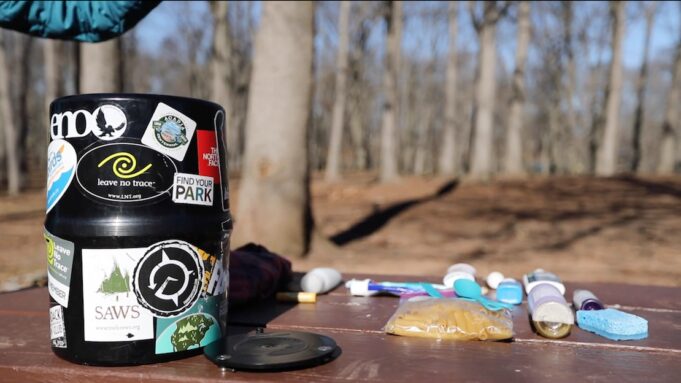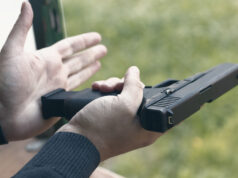Taking a backpack and traveling to a national park is a thrilling experience for adventure lovers. A backpack is a convenient and cheap way to travel to far-off places. However, backpackers can be exposed to considerable risks when they travel alone to national parks and forests.
The forests have all sorts of animals, and getting attacked in the wild can be a traveler’s worst nightmare. So, backpackers should know about backpacking bear canister that can protect them from an animal attack.
How Strong Is A Bear’s Sense Of Smell
Bears differ in their ability to smell, but almost all of them have a good sense of smell. A black bear, for instance, has a huge nose. The inner surface of an animal’s nose is covered by receptors for smell, so the usual rule of thumb is that the larger the surface for sniffing the better the sense of smell. So it is obvious that a black bear will be able to sniff out food from quite a considerable distance.
A bear’s ability to sniff out olfactory(smell) cues is better than a dog’s ability to sniff. Most wildlife experts believe that animals use their olfactory senses as their primary sense organ, unlike humans, who use their sense of sight.
However, there are several factors that affect the animal’s olfactory abilities. If the wind is very strong, then the olfactory cues( your scent or the scent of your food) vaporize pretty quickly, and it is likely that the animal will miss out on a potential food source.
Since bears have a great sense of smell, here are a few tips for backpackers that will keep them and their food safe while they are on a trip in the forest.
How To Ensure That Your Trip To The Wilderness Is A Safe And Sound
Try Avoiding The Beast
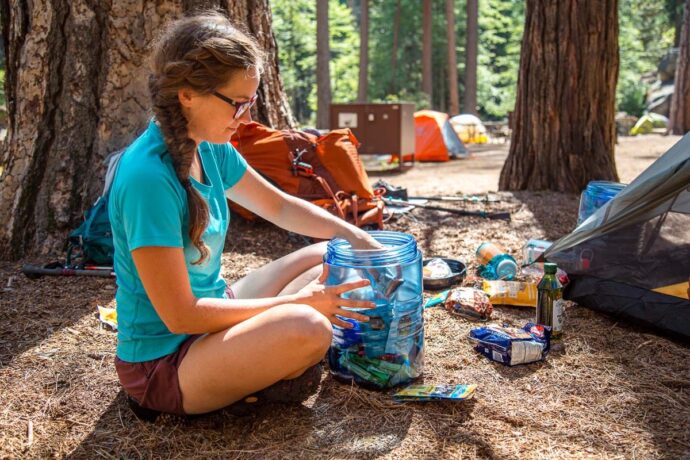
If you are planning to go on a backpacking trip to Alaska or Wyoming, then it is always advisable to read up about the animal and their habitat. Most wild bears are dangerous. They weigh many times more than an average human and have strong claws and teeth. So fighting such beasts is out of the question, and it is always prudent to avoid them altogether.
The hunting time of most bears begins right after sunrise, and they keep looking for food for a few hours after the sun has set. So during this time, it is always better to be extra cautious. If you are traveling in the early hours of the day, it is better to travel in groups and to make sounds while traveling.
Some experts suggest that clapping hands is a good way to avert an attack. When a group of six to seven people claps their hands in sync, then that sound should be able to stave off an attack in most cases. But it is better to avoid whistling because any other animal might mistake it to be the sound of a young one, and you may end up with a more dangerous encounter.
However, some animals may be extra ferocious, and if it is possible, it is better to travel during those months when the animal sleeps for extended periods. Animals like hares, bears, squirrels and lemurs go to sleep for many months when the temperature drops and the prey becomes scarce.
Cook With Caution
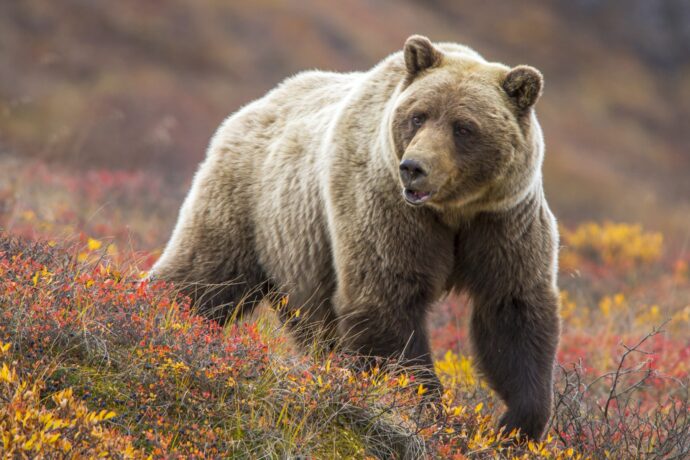
Most people carry canned food when they are on a trek. However, when people pour canned food into the water and cook it, the smell that emanates from the cooking can travel far and wide. So it is always better to remove the clothes that were used when the food was being cooked. So whoever is cooking at the campsite should be extra cautious about changing clothes after every single round of cooking.
If it is possible, then the clothes worn during cooking should be washed or else some sort of perfume or deodorant can be used to mask the smell of food. It is also wise not to store leftovers at a campsite. Leftovers can serve as signals which can be easily traced by an animal. And the waste disposal site should be a good distance away from the campsite as the waste can also attract animals.
Keeping The Food Safe
There is primarily only one way of protecting the food from the animal. The only way to keep food safe is to keep the food away from the animal’s reach. Many hikers prefer to tie the food at a height on top of a tree branch so that the animal cannot reach it.
However, if the bear is persistent, it may be able to reach up to the food. Also, remember that a bear, when standing up on two legs, is almost seven feet tall, which is taller than most humans, so if you can reach it easily, a bear definitely can do so too.
The other way to protect food is to use bear canisters that the animal cannot open. So, in this case, even if the bear reaches very close to the food, he will get nothing to eat, and thus he will eventually retreat to the wilderness without visiting the campsite for food.
Most canisters are strong, and they cannot be opened by animals that cannot twist their fingers. The cans are large enough to store enough food for four to five days. So if you invest in strong canisters, you can ensure that you can keep your food safe without attracting the attention of a wild beast.
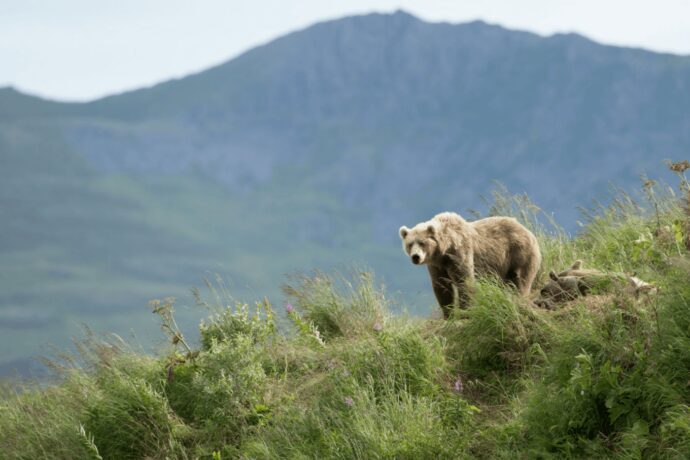
Conclusion
Today bear canisters have been widely accepted as a safe means to protect food against wild bears. In fact, most guidelines for national parks forbid entry if the hikers do not have these canisters. Apart from carrying canisters, traveling in groups, clapping while traveling on foot, cooking food cleverly and disposing of food safely can ensure that you do not attract the wild beast’s attention.

